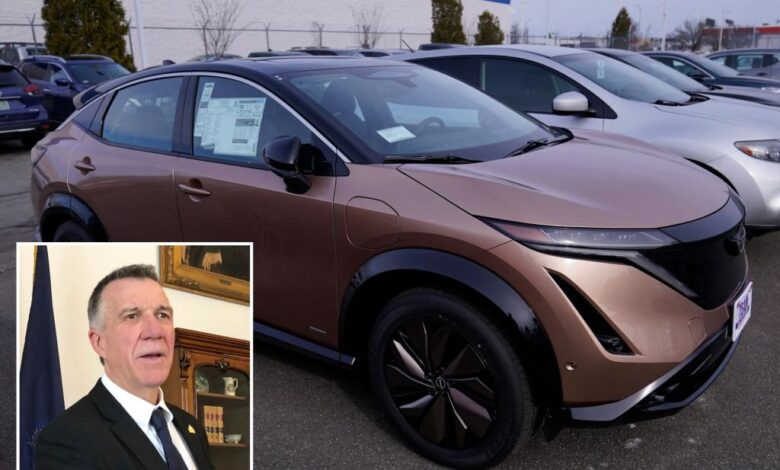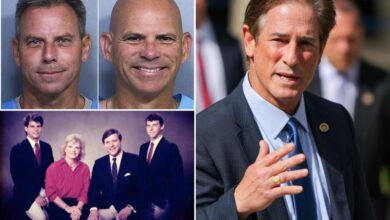Vermont halts electric vehicle requirements as governor says ‘current goals’ not realistic

Vermont Governor Phil Scott made the decision to pause the state’s electric vehicle sales requirements for passenger cars and medium and heavy-duty trucks on Tuesday. This decision comes amidst concerns about the feasibility of zero-emission vehicle rules that were originally pioneered by California.
Vermont is one of 11 states, including New York, Maryland, and Massachusetts, that have adopted California’s zero-emission vehicle rules. These rules aim to eliminate the sale of gasoline-only vehicles by the year 2035. California’s rules specifically mandate that 35% of light-duty vehicles in the 2026 model year must be zero-emission models.
Governor Scott, a Republican, explained that automakers have issued warnings that they may limit the supply of gas-powered vehicles to dealers in the state due to the EV rules. This lack of supply is a major concern for the state’s automotive industry.
“It’s clear we don’t have anywhere near enough charging infrastructure and insufficient technological advances in heavy-duty vehicles to meet current goals,” said Governor Scott, highlighting the challenges that the state faces in implementing these regulations.
In a similar move, Maryland Governor Wes Moore recently delayed the enforcement of the rules until the 2028 model year. This delay was prompted by concerns about tariffs and the lack of funding for charging infrastructure.
The House of Representatives also took action in May to block California’s landmark 2035 EV plan and its requirements for an increasing number of zero-emissions heavy-duty trucks. This move aimed to repeal the legal approval for the rules granted by the Environmental Protection Agency under former President Joe Biden.
Major automakers have voiced their opposition to the rules, arguing that they are unfeasible. They have lobbied against the regulations that mandate at least 80% EVs by 2035 and no more than 20% plug-in hybrids. California, on the other hand, maintains that these rules are crucial for reducing pollution and defends the legality of the regulations.
The Alliance for Automotive Innovation, which represents major automakers such as General Motors, Toyota, Volkswagen, and Hyundai, has warned that car companies could be forced to significantly reduce the overall number of vehicles for sale in order to meet the EV sales requirements.
California’s goal is for EVs to account for 68% of new vehicle sales by 2030 under the rules. However, the challenges and pushback from automakers and state governments highlight the complexities and obstacles in transitioning to a zero-emission vehicle future.





